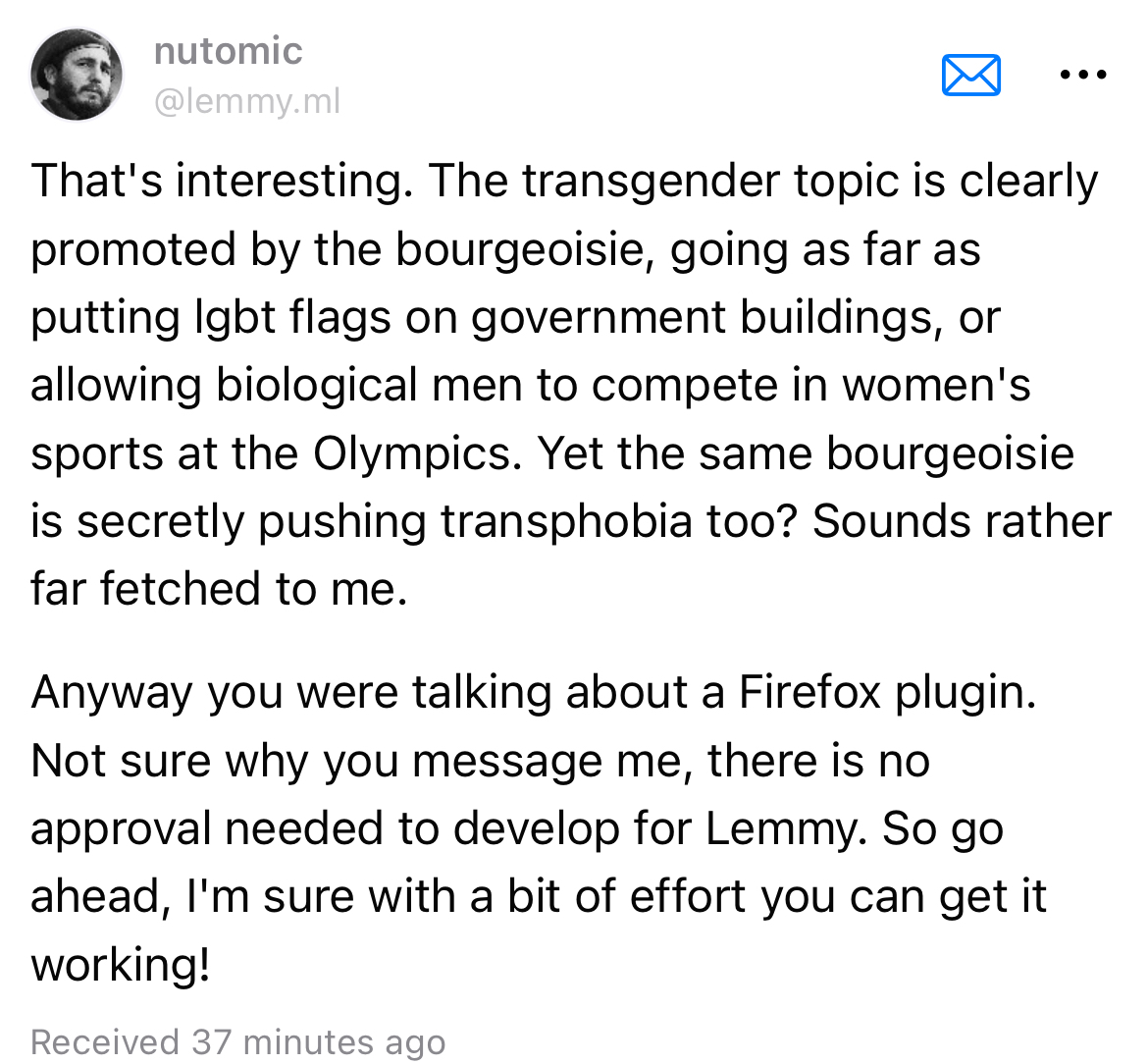this post was submitted on 03 Aug 2024
158 points (80.9% liked)
Fediverse
28688 readers
719 users here now
A community to talk about the Fediverse and all it's related services using ActivityPub (Mastodon, Lemmy, KBin, etc).
If you wanted to get help with moderating your own community then head over to [email protected]!
Rules
- Posts must be on topic.
- Be respectful of others.
- Cite the sources used for graphs and other statistics.
- Follow the general Lemmy.world rules.
Learn more at these websites: Join The Fediverse Wiki, Fediverse.info, Wikipedia Page, The Federation Info (Stats), FediDB (Stats), Sub Rehab (Reddit Migration), Search Lemmy
founded 2 years ago
MODERATORS
you are viewing a single comment's thread
view the rest of the comments
view the rest of the comments

Bourgeoisie means the middle class, it's frustrating that term has become incorrectly popularized as "those in power" or "the upper crust".
Not quite. Bourgeois were the merchant class which was the middle one during feudal times. But now they have become the ruling class and the term has started changing in meaning, but the old use still Is valid
I've heard the argument, but we already have more accurate terms like "capitalist".
I'm not saying people are going to stop using those terms, I just find personally find it silly.
It's like calling a truck a bicycle, and then having to explain every time that you understand a truck isn't really a "bicycle" but you have to call it a "bicycle" because everybody else calls it a bicycle.
Marxists tend to get stuck in definitions that were used in Marx's time, so I always try to interpret things in that way as well when talking to one to see if it makes sense and avoid misunderstandings. I prefer to talk about the actual issues than to bicker about definitions
I get that.
I feel like if it's small enough that there's no ambiguity about what you're talking about and you can move past it, that's the way to go.
I feel like a lot of the time though, people are using different definitions consistently specifically to evoke certain context clues in an efforts to avoid defining exactly how relevant their comment is to the issue ostensibly being presented.
So in a real-life c Toyota onversation, I'll usually clarify what they mean first, and if it's close enough to what we were talking about, we move on and keep talking.
Often with internet comments, I receive "no, I only mean this phrase or word, this is an equally valid definition", that means that we aren't even talking about the same thing and there's no point in pursuing the matter since they're focused on putting on a performance for dinner ulterior motive instead of making a point.
Goalposts and all that